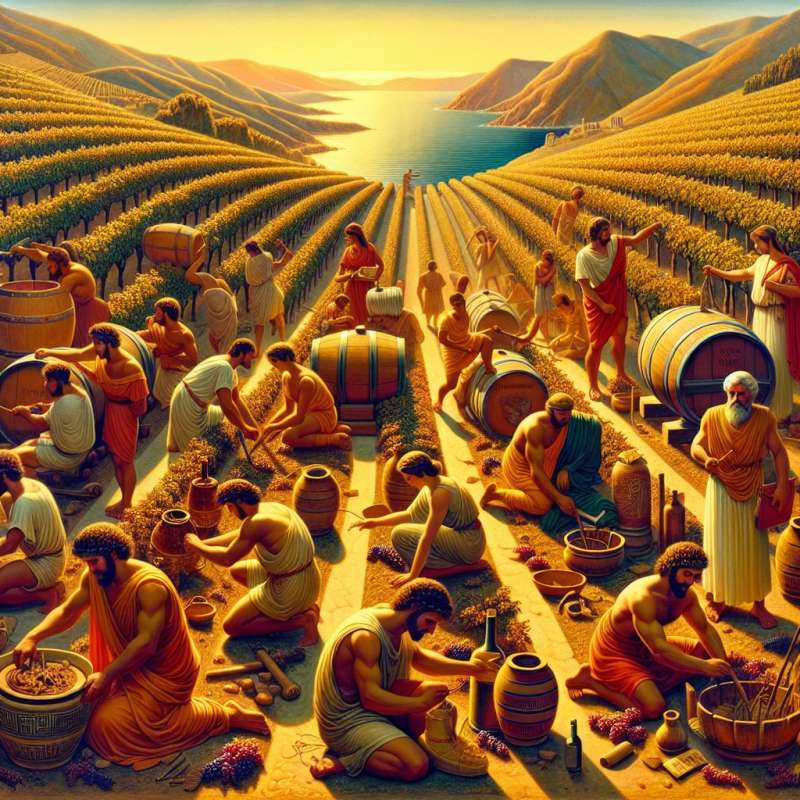
Winemaking: An Ancient Craft
Winemaking dates back to 6000-5800 BC, with the earliest evidence found in Georgia. Ancient pottery shards reveal residue from the first known grape wine, marking the beginning of a millennia-spanning tradition of viticulture.
Egyptians: Winemaking Pioneers
The Egyptians refined winemaking during 3100 BC. Hieroglyphics depict the cultivation of grapes, showcasing the integration of wine into ceremonies and daily life. They even pioneered the use of wine labels, detailing the product's year, place of origin, and vintner.
Greek and Roman Contributions
Greeks spread viticulture across the Mediterranean around 2000 BC. The Romans later improved winemaking techniques, including barrel-making and bottling methods. They also documented the first grand cru vineyards, recognizing the concept of terroir's influence on wine's flavor.
Monks: Medieval Vintners
During the Middle Ages, European monasteries were winemaking's sanctuary. Monks meticulously cultivated vineyards, developing superior wines. They also kept detailed records, greatly enhancing the understanding of viticulture and oenology – the science of wine and winemaking.
Industrial Revolution Impact
The 18th-century Industrial Revolution brought significant advancements in winemaking. Inventions like the wine bottle cork and machinery for mass production allowed for more efficient storage and distribution, setting the stage for global wine trade and consumption.
Phylloxera Epidemic Upheaval
In the late 1800s, the phylloxera epidemic devastated European vineyards, wiping out vast wine-growing areas. The solution—grafting European vines onto resistant American rootstock—saved the industry, creating the hybrid plants that are widely used today.
Innovation and Modernity
The 20th century saw innovations like stainless steel tanks and temperature-controlled fermentation, revolutionizing winemaking. These advancements, combined with scientific research into yeast strains and viticulture practices, have fine-tuned the wine production process, yielding diverse and high-quality wines.Oldest Bottle of Wine
The oldest unopened bottle of wine dates back to 325 AD, found in a Roman tomb in Germany. It remains sealed, a testament to ancient preservation techniques.
Earliest winemaking evidence location?
Mesopotamia
Georgia
Egypt
Company